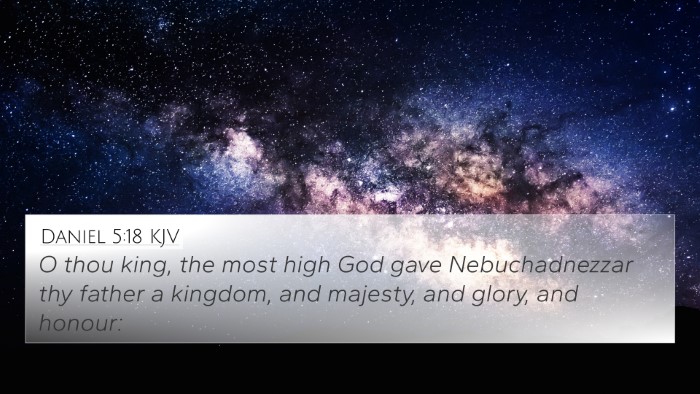Understanding Revelation 9:5
Revelation 9:5 states: "And to them it was given that they should not kill them, but that they should be tormented five months: and their torment was as the torment of a scorpion, when he striketh a man."
This verse comes within a vivid and disturbing vision that John shares in the Book of Revelation, depicting the judgment upon those who have turned away from God. Commentators emphasize the themes of warning, judgment, and the intense suffering of those who are not aligned with God's will.
Summary Insights from Public Domain Commentaries
The insights from notable biblical commentators, such as Matthew Henry, Albert Barnes, and Adam Clarke, enhance our understanding of this verse and its implications. Below we summarize their key observations:
-
Matthew Henry:
Henry highlights the mercy intertwined with judgment. Despite the severe torment inflicted by these "locusts," there is a prevention of death, signifying that God's ultimate aim is repentance rather than destruction. The duration of suffering (five months) suggests a limited time, hinting at a potential for redemption.
-
Albert Barnes:
Barnes interprets the locusts as a metaphor for oppressive forces that would plague the earth during the end times. The torment compares the pain inflicted by these creatures to a scorpion's sting, which indicates acute and psychological suffering rather than physical death. This suffering is designed to lead to a recognition of their sins.
-
Adam Clarke:
Clarke explains the symbolic nature of the locusts, suggesting they may represent demonic forces that will work against humanity. The five-month period is significant, as it parallels the life cycle of locusts, illustrating that this judgment will not go on indefinitely. Clarke stresses the importance of heeding the signs of the times and embracing God’s mercy.
Connections to Other Bible Verses
Revelation 9:5 has numerous connections throughout the scriptures. Cross-referencing these biblical texts can enrich the understanding of this passage. Below are significant verses that establish thematic links:
- Joel 1:4: The locust plague described in Joel’s prophecy resonates with the imagery in Revelation, emphasizing divine judgment through nature.
- Exodus 10:4-5: The infliction of locusts upon Egypt as a curse parallels the torment in Revelation, showcasing God's power over nations.
- 1 Corinthians 15:55: “O death, where is thy sting?” presents a contrast between torment and victory over death, emphasizing the nature of eternal life.
- Luke 10:19: “I give you power to tread on serpents and scorpions,” signifies the authority believers have over demonic influences, alluding to the torment depicted in Revelation.
- Matthew 24:21: Relating to the great tribulation or period of suffering which supports the themes of trials and judgments found in Revelation.
- Revelation 9:6: The subsequent verse emphasizes the depth of anguish experienced which complements the warnings in verse 5.
- Hebrews 10:31: “It is a fearful thing to fall into the hands of the living God,” underscores the seriousness of divine judgment and the terror to come for those outside God's grace.
Tools for Bible Cross-Referencing
For those seeking to explore these connections more deeply, there are several tools and methodologies available:
- Utilize a Bible concordance to locate related themes and concepts across various verses.
- Employ a cross-reference Bible study that highlights similar scriptures in the margins or footnotes.
- Engage with Bible cross-reference guides available through many study Bibles to follow thematic links.
- Consider comprehensive Bible cross-reference materials that provide extensive lists of connected verses.
Why Cross-Referencing is Important
The act of cross-referencing enriches our Bible study experience by allowing us to:
- Recognize connections: Understanding how different scripture passages relate enhances comprehension.
- Identify themes: Seeing similar themes across both the Old and New Testaments opens our eyes to God's narrative.
- Support interpretations: Linking verses can provide clarity and context for difficult passages, leading to more robust theological conclusions.
Conclusion
Revelation 9:5 serves as a stark reminder of the consequences of turning away from God. The torment experienced is not merely physical suffering, but a psychological distress meant to lead to repentance. By employing cross-referencing, believers can gain a richer understanding of this verse's impact and message within the wider biblical narrative.











